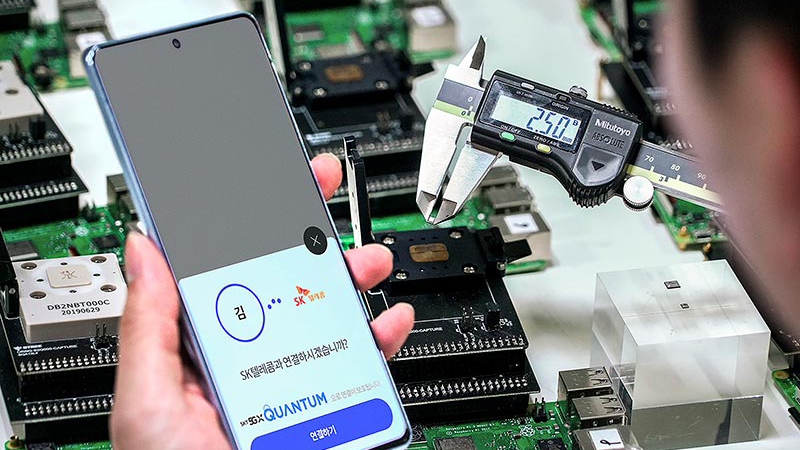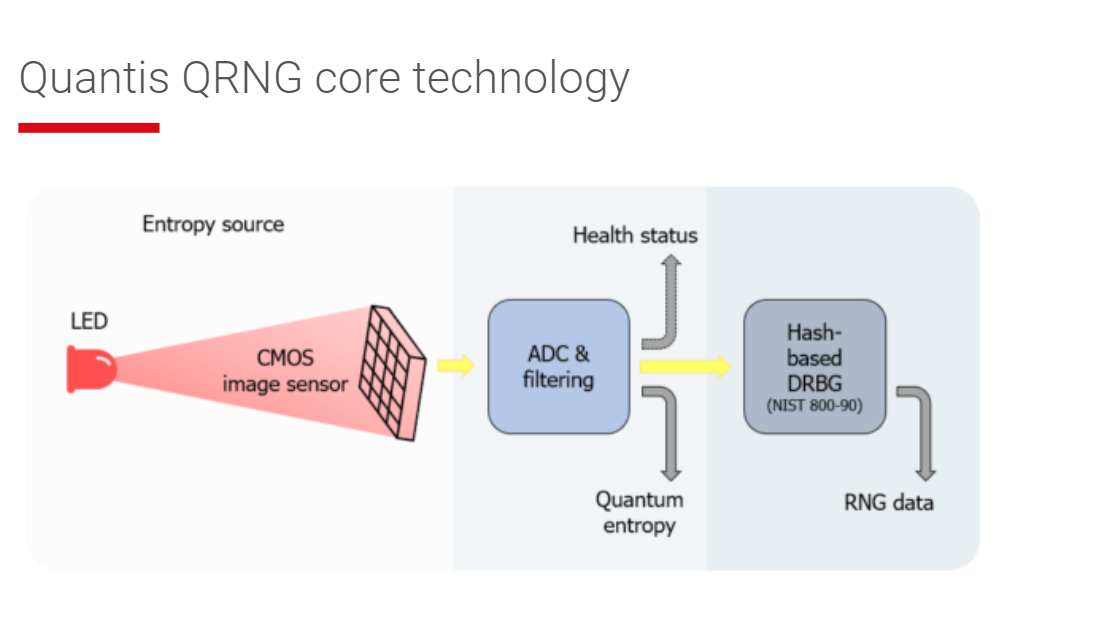SKT and Samsung launch the world’s first quantum security 5G phone
The Samsung Galaxy A Quantum will deliver unparalleled levels of security in a smartphone.

To keep its users secure in the new landscape of quantum computing, SK Telecom (SKT) has announced the launch of the world's first 5G smartphone equipped with a quantum random number generation chipset.
SKT has equipped its new Galaxy A Quantum handset – which appears to be a Galaxy A71 5G variant – with the world's smallest quantum random number generator (QRNG) chipset, measuring in at just 2.5 x 2.5 mm.
The QRNG chipset helps smartphone users safely use specific services, by generating pure random numbers. To achieve this a CMOS image sensor in the chip detects the light (photons) emitted by the LED light source.

“With its compact size and low power consumption, our latest Quantis QRNG chip can be embedded in any smartphone, edge and IoT devices, to ensure trusted authentication and encryption of sensitive information.” said Grégoire Ribordy, CEO and co-founder of IDQ, the chip’s developer.
What’s the big deal with quantum computing?
“Using a Quantum Random Generator at the edge is a first step to make wireless and IoT ecosystems quantum-safe and prepare for the quantum computing age."
Grégoire Ribordy, IDQ.
Today, encryption systems tend to rely on the difficulty of breaking down large numbers into prime numbers, in a system known as factoring. On a standard PC it’s a long, expensive process, but quantum computers can easily manage it, which puts all of our data at risk. And security will be of particular importance for 5G phones.
This has led to a quantum computing arms race, which is currently taking place in the security world, between the black hats, looking to break the encryption of some of the world’s most advanced algorithms, and the white hats, who are trying to find a way to keep them at bay.
“Using a Quantum Random Generator at the edge is a first step to make wireless and IoT ecosystems quantum-safe and prepare for the quantum computing age. Securing smartphones and IoT devices is a top priority for many manufacturers,” explained Ribordy.
SIGN UP FOR E-MAIL NEWSLETTERS
Get up to speed with 5G, and discover the latest deals, news, and insight!
SK Telecom plans to expand its offering, so that quantum security can be applied to more services in the future. The plan is to share open APIs on the SK Open API website. In addition, SKT plans to continuously expand quantum security-based services into securing 5G networks, IoT, autonomous driving, and cloud.
“The quantum random number generation chipset is optimized for smartphones with a compact, low-power product,” said Ribordy. “The launch of the Galaxy A Quantum is the first in the mass market where quantum security technology is popular. It is meaningful as an applied example.”
The shipping price for the new Samsung Galaxy A Quantum is 649,000 won, and it will be officially released on the 22nd May, and will be available via the SKT website.
“The launch of the Galaxy A Quantum has rewritten the history of the world's quantum security industry,” concluded Yoo Young-sang, SK Telecom's MNO business manager.
- Discover the best 5G networks in the UK and US
- Get your hands on the hottest 5G phones
- Millimeter wave: the secret sauce behind 5G
- The complete guide to 5G security
- We reveal the latest 5G use cases
- Discover the truth behind 5G dangers
- 5G towers: everything you need to know

Dan is a British journalist with 20 years of experience in the design and tech sectors, producing content for the likes of Microsoft, Adobe, Dell and The Sunday Times. In 2012 he helped launch the world's number one design blog, Creative Bloq. Dan is now editor-in-chief at 5Gradar, where he oversees news, insight and reviews, providing an invaluable resource for anyone looking to stay up-to-date with the key issues facing 5G.

